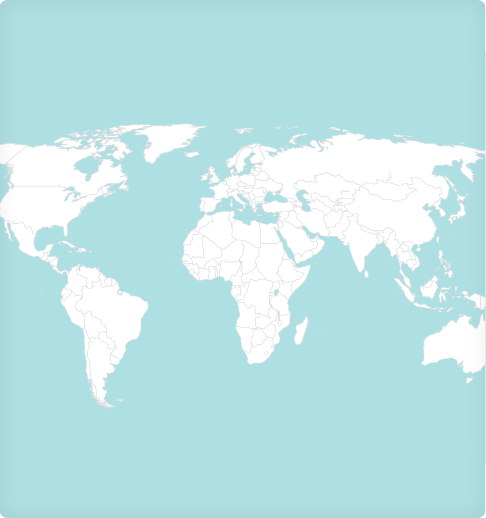Credits
16
Prerequisites
None
Courses taught in
English
Dates
early September – mid-December
Program Countries
Jordan
Critical Global Issue of Study
Identity & Human Resilience

Explore Middle Eastern culture and witness Jordan’s response to regional refugee crises with a focus on refugee health, human resilience, and community empowerment.
16
None
English
early September – mid-December
Jordan
Identity & Human Resilience
SIT First Year: a new experience from SIT, the fully accredited leader in academic and social justice-driven study abroad.
Jordan has welcomed millions of refugees in the past 75 years, while maintaining high global rankings in education, health, and tech systems. Get a firsthand look at Jordan’s development, humanitarian aid, and community empowerment efforts. Explore identity and human resilience as you learn about Jordanians’ everyday experiences. Visit spectacular natural landscapes, spend a night under the stars in the vast desert of Wadi Rum (The Moon Valley), and see Petra (The Red Rose City), one of the world’s wonders.
None.


A one-day excursion that starts with a visit to Madaba (the mosaic city and Mount Nebo, then continues to the claimed site of Jesus’ baptism and the Dead Sea.
In this three-day excursion, visit Jerash, the second-best preserved ancient Roman city outside of Rome; explore Um Qais, where one can see Syria, Israel/Palestine, and Lebanon from one spot; and wander Ajloun, a green and mountainous conservation area.
This is a three-day excursion visiting Wadi Rum, Petra, and the seaport of Aqaba.
Please note that SIT will make every effort to maintain its programs as described. To respond to emergent situations, however, SIT may have to change or cancel programs.
The following syllabi are representative of this program. Because courses develop and change over time to take advantage of dynamic learning opportunities, actual course content will vary from term to term.
The syllabi can be useful for students, faculty, and study abroad offices in assessing credit transfer. Read more about credit transfer.
This course prepares students to transition from high school to college, as well as between living and learning at home and abroad. Course content and activities, including basic language instruction, orient students to the intellectual, social, and intercultural atmosphere of their learning community. Through experiential learning activities and personal reflection, students will develop the transferable knowledge, skills, and habits that lead to success, well-being, and resilience in the program, in college, and beyond. Course concepts include cultural immersion, anti-oppression and anti-bias training, mindfulness for well-being, “campus” resources, and academic success strategies.
This course challenges students to develop appreciation of multiple perspectives and an understanding of reciprocal engagement with local communities. Students are asked to employ “service listening” (as opposed to “service learning”) as they learn what reciprocal engagement means for their host communities. Volunteer experiences with SIT community partners help students learn about the practical and ethical concerns that shape engagement and reciprocity in community action. Students will develop knowledge, skills, and perspectives that transfer to their academic trajectories, while experiencing mutually beneficial civic and community partnerships.
The Career Pathways and Explorations course guides students in an exploration of their interests, field experiences, and personal goals to craft pathways toward their academic and career goals. Students are guided through reflective, exploratory, experiential, and information-gathering exercises that help them articulate long-term goals. Students are offered mentorship as they gain tools to help achieve those goals. By the end of the semester, each student develops a pathway map: a plan that identifies goals and concrete steps through college and toward a career. Concepts include personal identity, values, and career choices.
SIT programs are developed around a framework of the most critical global issues—challenges that transcend borders to touch every aspect of life. The First Year Seminar uses the Critical Global Issues framework to explore topics through local, regionally comparative, and global perspectives. It aims to foster a sense of ethics and an inclusive, diverse approach in academics. The SIT First Year Seminar promotes close interaction between faculty and students in a small setting to increase intellectual engagement and help students develop skills for academic success.
This course leverages students’ unique opportunities abroad to focus on ethical engagement and introduce them to research, research design, and field-based methods for exploration. We will explore community-based research strategies, an approach that prioritizes local knowledge to mitigate the socio-cultural, economic, and structural barriers that prevent success in effecting social change.
This course provides an overview of cultural anthropology, a broad field examining the varied conditions of human existence. In this course we will focus on how our beliefs, contexts, and histories reflect and shape our perspectives, interactions, and experiences. We will study the history and theoretical foundations of the field, survey its major concepts, and explore its distinctive methodologies. We will also address the legacies of inequities and ethnocentrism in the field’s development and how it is reckoning with its origins. Through learning about anthropological perspectives, the course will clarify how explorations of the unfamiliar may help reveal that a person’s own culture or worldview is one among many, rather than a norm through which difference should be understood.
This program consists of a semester-long, two-unit group internship with a community organization, research organization, business, cultural institution, or international NGO. Small groups of students are placed together and given a project to tackle as a team under the mentorship of the organization (for instance, putting together a study or marketing campaign, developing a social media strategy, etc.). The group internship concept allows the first-year student to pursue career interests, but in the less complex environment of an individual project. The organization may also ask individual students to do job-shadowing or provide other duties during the internship. This group internship aims to help students sample a prospective career, gain experience for their resumes, and get valuable learning experience in a professional environment. It enhances critical thinking, time management, and intercultural communication skills in an international professional environment. An internship is part of the student’s experiential learning on the program and is not a paid job.
Students may take a language course as an elective. Students will be placed in the appropriate level of a local language (taught in person), or any other language offered by SIT via our online language programming.
This option will be determined in collaboration with students’ home schools.



SIT Study Abroad is committed to ensuring that international education is within reach for all students. We believe in the transformative power of immersive, intercultural experiences and are dedicated to supporting students in their educational journey.
Learn More
A critical step in preparing for your study abroad program is planning how you will maintain your health and wellbeing. Please review the following information carefully and contact [email protected] with any questions or concerns.
View Information